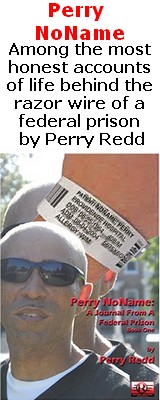|
|
|

|
|

|
|
|

"King’s youngest son, Dexter runs the Intellectual Properties
Management arm of the King Center, which appears not to
distinguish between commercializing King from communicating
King to younger and wider audiences. Its aim is for revenue
maximization, by any means that presents itself.
This time it was the Dodge Ram truck ad."

|
|
With
2018 being the 50th anniversary of the Rev. Dr. Martin Luther King,
Jr.’s assassination commemorations honoring the man will be
taking place across the country. But who would think a Super Bowl ad
with a King voiceover would be used to sell pickup trucks? The pitch
for Dodge Ram trucks’ “Built To Serve” Volunteer
Program did just that and provoked a fast and furious backlash on
Twitter and a rebuke from the King Center.
Adding
insult to injury the commercial’s narrative arch from beginning
to end misappropriates MLK’s essential message in his 1968
speech, “The Drum Major Instinct.” The speech rails
against materialism using cars as a classic example.
“Do
you ever see people buy cars that they can’t even begin to buy
in terms of their income? You’ve seen people riding around in
Cadillacs and Chryslers who don’t earn enough to have a good
T-Model Ford,” King said in his sermon.
Black
misrepresentation in commercial advertising, however, is not new. The
exploitation of black talent and the objectification of black bodies
and images to pad the pockets of profit-making corporations under the
guise of helping underserved populations and communities is also not
new.
For example, we all remember the 2017 Pepsi commercial
fiasco starring Kendall Jenner. The ad preyed on racial and ethnic
stereotypes in its attempt to expand the brand to a multicultural
consumer base. Also, it misappropriated of the iconic and viral photo
of Ieshia Evans, the 28-year-old African American mother who in 2016
during a Black Lives Matter protest in Baton Rouge stunned the nation
as well as the world when she silently walked to the front line of
heavily-armed police and offered her hands to be arrested. Jenner,
however, with the reenactment of the white hero/ rescuer trope
thwarts a possible riot in the commercial simply by offering a white
cop a Pepsi.
The Dodge Ram trucks commercial is not so
egregious. Ram Nation Volunteer Program’s mission is
“supposedly” not to sell their trucks but rather to
highlight how its “Ram Truck owners are a special breed”
serving all of humanity “from disaster relief to blood drives
or even just cutting a neighbor’s grass.” Its webpage
uses MLK’s quote “Everybody can be great because
everybody can serve,” to bolster its claim. While the ad was
not only tone deaf in mixing King’s speech with its product
promotion the Ram Nation Volunteer Program’s ill-conceived
ambitious project, however, didn’t undermine its goals, and
that’s to sell trucks.
The use of revered dead
historical figures to pitch products has become a popular advertising
strategy to instantly attract consumers' attention given their high
level of recognition even if there’s a backlash. In a 30 to
60-second television spot, like the Super Bowl that draws annually
one of the largest viewership, revered dead historical figures make
the sale for commercial products because their iconic stature in
society if not throughout the world and the story behind their images
easily resonate with viewers. For example, the 2012 Red Bull
commercial mocking Jesus’s miracle of walking on water received
an outcry from Christians across the country, myself included. The
energy drink maker, however, dropped the ad immediately but its sales
soared, nonetheless.
While I find Dodge Ram truck commercial
disrespectful and dangerous in this political era of fake news,
alternative facts and revisionist history, the commercialization of
King suggest that the money that can be made from King is more
important than the message of King. Sadly, however, the Ram Dodge
Truck ad is not the first time King is repackaged to sell a product.
In 2001 King’s world-renown “I Have a Dream” speech
was used in print and TV for Alcatel Americas, a telecommunications
and networking equipment company. Alcatel wanted to co-opt the speech
to give it a “Forrest Gump”-like spin. Can you imagine?
When it comes to pimping a profit from the King’s
legacy, however, the dilemma is aided by King’s youngest son,
Dexter. He treats his father’s speeches as commercial literary
works charging license fees for their use. Regrettably, Dexter runs
the Intellectual Properties Management arm of the King Center, which
appears not to distinguish between commercializing King from
communicating King to younger and wider audiences. Its aim is for
revenue maximization, by any means that presents itself. This time it
was the Dodge Ram truck ad.
|
BlackCommentator.com
Editorial Board member and Columnist, The Reverend Monroe is an
ordained minister, motivational speaker and she speaks for a sector of
society that is frequently invisible. Rev. Monroe does a weekly Monday
segment, “All Revved Up!” on WGBH (89.7 FM), on Boston Public Radio and
a weekly Friday segment “The Take” on New England Channel NEWS (NECN).
She’s a Huffington Post blogger and a syndicated religion columnist.
Her columns appear in cities across the country and in the U.K, and
Canada. Also she writes a column in the Boston home LGBTQ newspaper
Baywindows and Cambridge Chronicle. A native of Brooklyn, NY, Rev.
Monroe graduated from Wellesley College and Union Theological Seminary
at Columbia University, and served as a pastor at an African-American
church in New Jersey before coming to Harvard Divinity School to do her
doctorate. She has received the Harvard University Certificate of
Distinction in Teaching several times while being the head teaching
fellow of the Rev. Peter Gomes, the Pusey Minister in the Memorial
Church at Harvard who is the author of the best seller, THE GOOD BOOK.
She appears in the film For the Bible Tells Me So and was profiled in
the Gay Pride episode of In the Life, an Emmy-nominated segment.
Monroe’s coming out story is profiled in “CRISIS: 40 Stories
Revealing the Personal, Social, and Religious Pain and Trauma of
Growing up Gay in America" and in "Youth in Crisis." In 1997 Boston
Magazine cited her as one of Boston's 50 Most Intriguing Women, and was
profiled twice in the Boston Globe, In the Living Arts and The
Spiritual Life sections for her LGBT activism. Her papers are at the
Schlesinger Library at Radcliffe College's research library on the
history of women in America. Her website is irenemonroe.com. Contact the Rev. Monroe and BC.
|
 |
|
|
|
|
 |
|
|
|
 is published every Thursday is published every Thursday |
Executive Editor:
David A. Love, JD |
Managing Editor:
Nancy Littlefield, MBA |
Publisher:
Peter Gamble |
|
|
 |
|
|
|
|
|
|
 |
 |
|
|
|
|
 |
|
|
|
|
|
|

